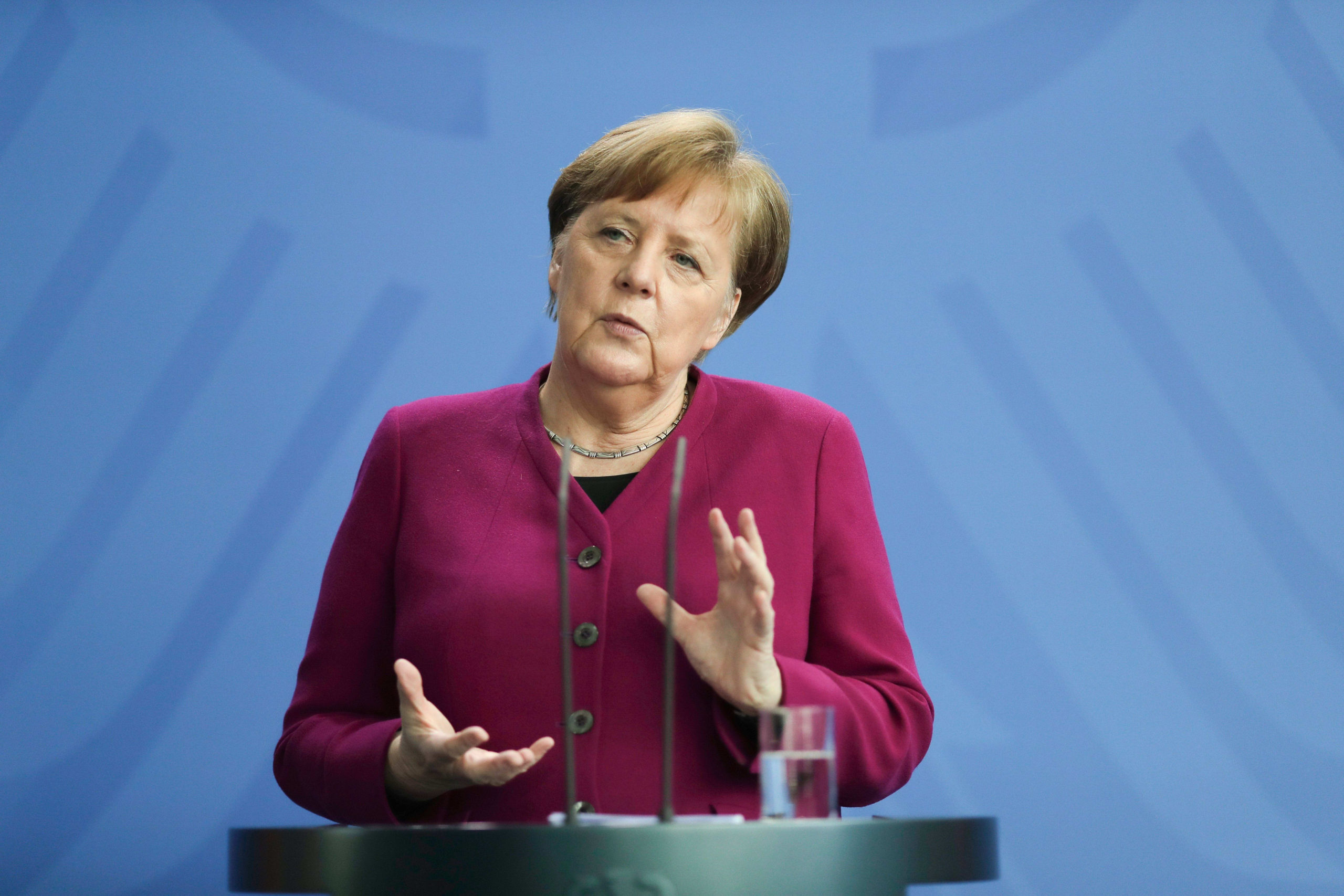[ad_1]
German Chancellor Angela Merkel briefs the media about measures of the German government to avoid further spread of the coronavirus on April 9, 2020 at the chancellery in Berlin.
Markus Schreiber | Pool | AFP | Getty Images
German Chancellor Angela Merkel said the end of the coronavirus pandemic is not yet in sight and that we will have to live with the virus “for a long time.”
Speaking to Germany’s Parliament, the Bundestag, on Thursday, Merkel said “we are not living in the final phase of the pandemic, but still at the beginning.”
“We have won time,” Merkel said, according to a Reuters translation, adding that this had been used to bolster Germany’s health-care system.
Germany cautiously started to lift its lockdown restrictions at the start of the week, with smaller retailers of under 800 square meters allowed to reopen on Monday, as long as hygiene and social-distancing measures could be maintained. Larger car dealerships, bike shops and book shops have also been allowed to open their doors.
Merkel’s comments on Thursday reflected much caution in the government, however, and a desire to lift the lockdown slowly. Germany’s economy is expected to contract 7% in 2020, according to the International Monetary’s Fund’s April outlook, before rebounding to expand 5.2% in 2021.
“Things will remain very hard for a long time,” Merkel also told lawmakers Thursday.
Germany has over 150,000 reported cases of the coronavirus, according to data from Johns Hopkins University, but has seen a far lower death rate, currently at 5,315, compared to other European countries. The number of cases among younger people, widespread testing, contact tracing and a recently modernized health-care system are reportedly factors behind the relatively low number of deaths.
Germany’s fatality data is far lower than Italy’s number of deaths, of just over 25,000, or Spain which has reported 21,717 deaths.
The coronavirus pandemic in Europe has brought old tensions to the fore when it comes to money. Southern European countries harder hit by the virus, especially Spain and Italy, have called for the euro zone to issue joint debt to help economies recover from the impact of the virus. But richer nations Germany and the Netherlands have been reluctant.
Merkel said Thursday that Germany should be ready to pay more into the EU budget, however. “Our consultations today won’t yet be about nailing down details or deciding on the extent but one thing is already clear: In the spirit of solidarity, we should be prepared — over a limited period of time — to make very different, meaning much higher, contributions to the EU budget.”

















